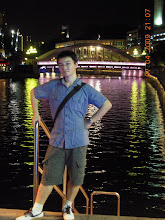Every time I think about the intercultural communication, I always treat it as the translation between two languages. Indeed, it is often the case that you need to be able to understand the language first before the communication, however, you may talk about rather different things even if you share the same language.
I will use two example to illustrate that. When I was working in the last summer vocation, my colleagues and I was we complaining the long working hours, and I said how I wish I could have a “lan jiao” (the pronunciation is in Chinese, which means to sleep late in the morning) while she took that as unacceptable and she told me I was rather rude! I got confused, so I explained as I was saying that I wish I could sleep until the noon. She laughed and told me that, the pronunciation of “lan jiao” is a rude word as it refers to the penis. I was shocked since we were chatting in Chinese and I never thought about the same words in the same languages have two totally unrelated meaning. After that, I started to study the culture differences and I never mentioned about any rude words to her again.
One the other day, I saw a lovely baby and I just said what a smart baby. my colleague and the baby’s mother said “no, no, no.” three time together and she told me never praise a baby as he or she would grow to the opposite, and she said directly to the baby, “you are stupid and ugly.” and then both of the mother and my colleague laughed, leaving me confused again.
After those experience, I learnt that whatever I am going to do, I’d better check out the cultural differences and ask first. It is hard to learn a second language and the same as learn all those cultural difference, yet it is of the same fun to do that as well.
